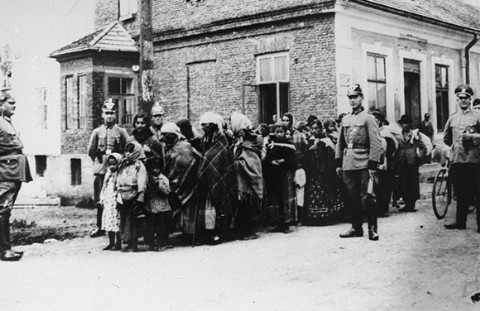August 2 is commemorated as the Roma Holocaust Memorial Day for the Roma and Sinti people who were killed in lakhs by the Nazis in concentration camps. It is believed that nearly five lakh Roma people were killed by the Nazis, though some of the Roma say that the number could be over a million.
The massacre of the Roma, also known as European gypsies, has remained suppressed for decades. The European people and governments have denied that the Roma families too, just like the Jews, had been hounded and massacred en masse in Nazi gas chambers while others had been enslaved to work as forced labour.
It was only in 2015 that the European Parliament declared August 2 as the annual 'European Roma Holocaust Memorial Day' to commemorate the genocide of 5,00,000 Roma—believed to be almost one-fourth of their population. August 2 was chosen as the commemorative date as 4,300 Roma people including minor children were put to their deaths in the infamous family camp of Auschwitz-Birkenau on this night.

A Roma family (Photo courtesy: Antar Rashtriya Sahayog Parishad)
It is commonly believed that the Roma people reached Europe from India though other stories also compete about their origins.
The Indian Council for Cultural Relations (ICCR), through the Antar Rashtriya Sahayog Parishad (ARSP) set up the Centre for Roma Studies and Cultural Relations (CRSCR) to conduct research on the Roma people as well as strengthen bridges with the community owing to India's cultural and civilizational connect. The Ministry of External Affairs has extended support to the research on the Roma community.
Mohammed Zameer Anwar, Senior Research Associate at the CRSCR, ARSP, says that the Roma people have been historically marginalised in Europe. "Many countries passed legislation to prosecute the Roma people. Killing them was not considered to be a crime as the Europeans believed that the Roma are pernicious to society". Though things have begun to ease, the discrimination and harmful stereotypes against a community that is considered non-European have persisted.
Despite discrimination for centuries, being treated as the 'other' and being put to the gas by the Nazis, the community has survived. In some countries, the Roma constitute upto ten per cent of the population. Worldwide, they number around 22 million.
Despite an avowed commitment to human rights and individual freedom, Europe did not allow that freedom to the Roma. Even the Catholic church did not come to the rescue of the community during the dreaded days of World War-II. Roma children and babies were allowed to be "exterminated" at the hands of the Nazis.
The human development conditions for a majority of the Roma remain miserable. Researchers believe that this was not always the case. A few hundred years back, the Roma were skilled craftsmen, excelled in the arts, were warriors and good in forging iron and making swords. They were also enlisted as fighters in numerous wars that took place in Europe over centuries.
The decline of the community began due to systematic discrimination and xenophobia, says Anwar, adding that there has been a "deliberate distortion in the narrative about the Roma people. Many European historians have even persisted with the argument that the Roma people do not have a history. This denial has become a tool for many to discriminate against them. To this day, people in Europe are not aware that Roma were as much the victims of the holocaust as were the Jews", says Anwar.
Some countries have finally begun to give recognition to the community.
"Many Roma families have begun to settle down though there are a few itinerant people as well. The European Union has begun work to integrate them into the mainstream. The EU has developed the Roma Integration Policy which is a non-binding 10-year framework to guide the European governments", anwar says, adding that this policy provides ideas to European countries to enable harmonious living for the community.
The community has asked for reparations on the lines of those paid by Germany to Israel and other Jewish organisations stretching over years. However, reparations to the Roma people have not yet materialised. Part of the reason is that the community is not very well organised, it continues to face racism and does not have powerful advocates to speak on its behalf.
Some of the members of the community have begun to look at India for support.




















